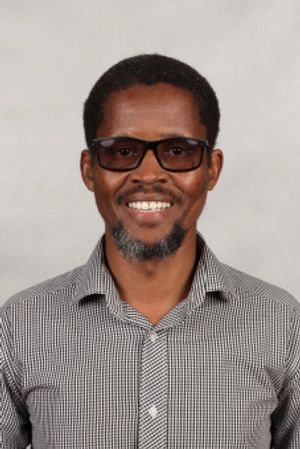“Conflict is your friend.”Mtho Ngcangi, BAC College Counsellor
BAC’s Mtho Ngcanga believes we are brought up to believe that conflict is bad, and we must avoid it at all costs. As a College counsellor, he has a different perspective on family conflict than most, having grown up in apartheid South Africa, and believes in the value of fostering differing points of view within a healthy family.

“Conflict begins when people have different ideas—which is both healthy and okay! The way we manage it, however, makes all the difference. Do we argue or reason with each other when we have conflicting ideas? Instead of taking someone’s opposition personally, getting our backs up and letting our relationship break down, if we see conflict as a space in which to grow and ask questions, it can change how both parties think and feel.”
Mtho says he is a wounded healer and draws on examples from his own life. He and his father conflicted when he was a teenager, and he recognises now that they didn’t have the emotional or cognitive tools to resolve the issue. Instead, he went to live with his grandmother for five years, believing that separation was their best and only solution.
“When I look back, I regret not having a skilled mediator to help us with our conflict,” he says. It took many years for them to finally heal their troubled relationship.
Mtho’s fascination with how relationships work has ultimately led him to this role at BAC. He originally trained and worked in church ministry before accepting a Family Ministries position. After some time, he moved into youth work, supporting unaccompanied minors, and then counselled children and youth who had experienced torture and trauma. In the process, he recognised that relationships were integral to every aspect of life. Wanting to help the young people he worked with get more out of life, he undertook a graduate diploma in psychology. Now he brings both experience and expertise to BAC, helping parents and children understand each other better.
“Good families make good communities—and good families don’t happen by chance!” says Mtho. “When parents build on their own emotional strengths, they become more attuned to their children’s emotional strengths. They respond out of love and connection instead of reacting out of fear."
“Connection before correction” is a phrase used in child development and neuroscience. It was popularised by well-known child psychiatrist Daniel Siegel, who wrote The Whole Brain Child: 12 Revolutionary Strategies to Nurture Your Child’s Developing Mind, Survive Everyday Parenting Struggles, and Help Your Family Thrive. Research shows that we cannot positively influence children until we create a connection with them, and Mtho says that parenting is a brain and a heart thing. Sometimes, he says, it’s more productive to stop dealing with misbehaviour while we heal the relationship.
He asks parents to consider this one vital question: “Do we want to win the idea and lose the child, or do we want to maintain a connection and work on ideas later?” Ideas change, he says, but people will always be human beings.
College Counsellor Mtho Ngcanga works with children from Prep to Year 12. He can be reached by emailing enquiries@bac.qld.edu.au or calling 07 3347 6444.
